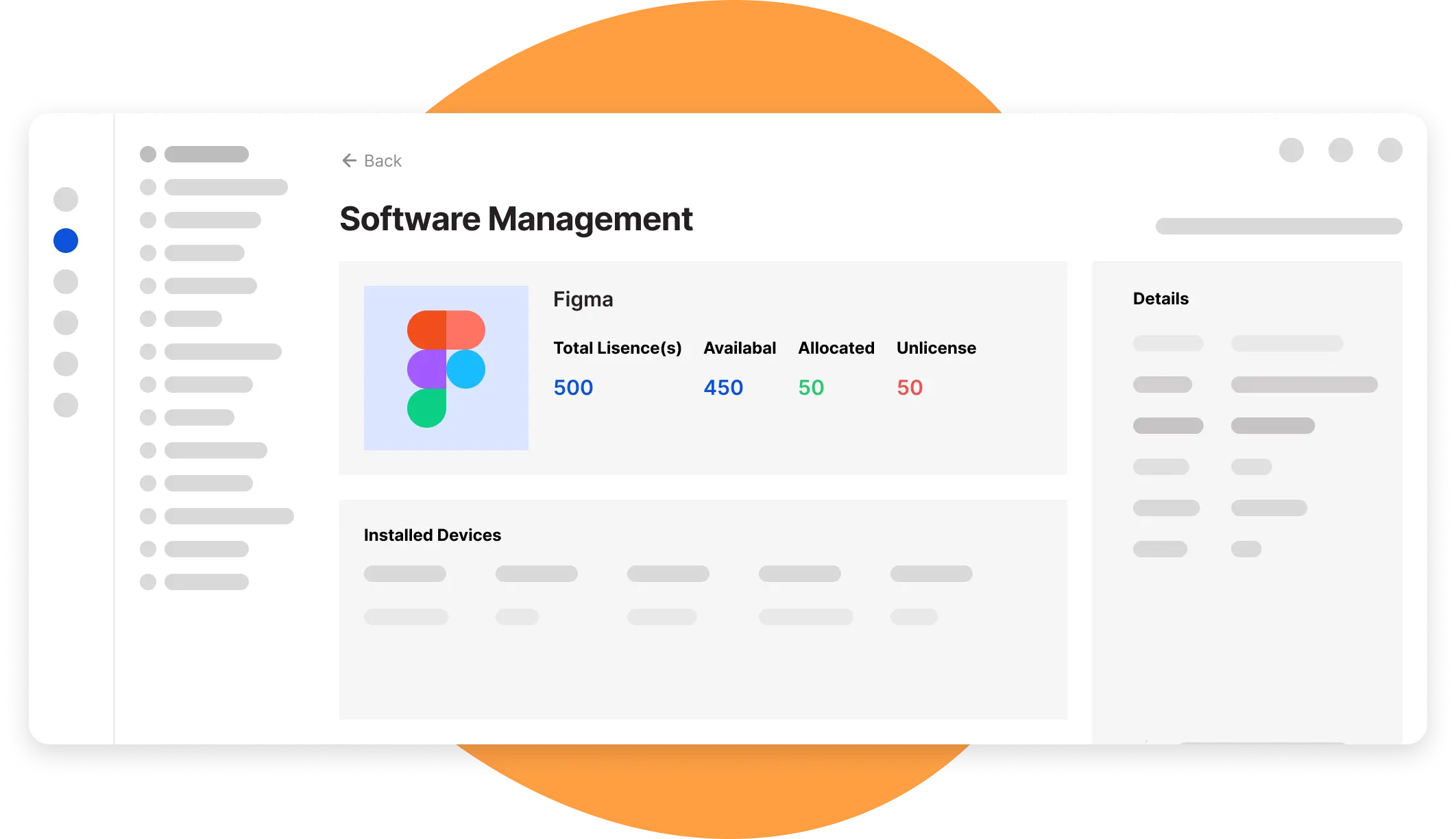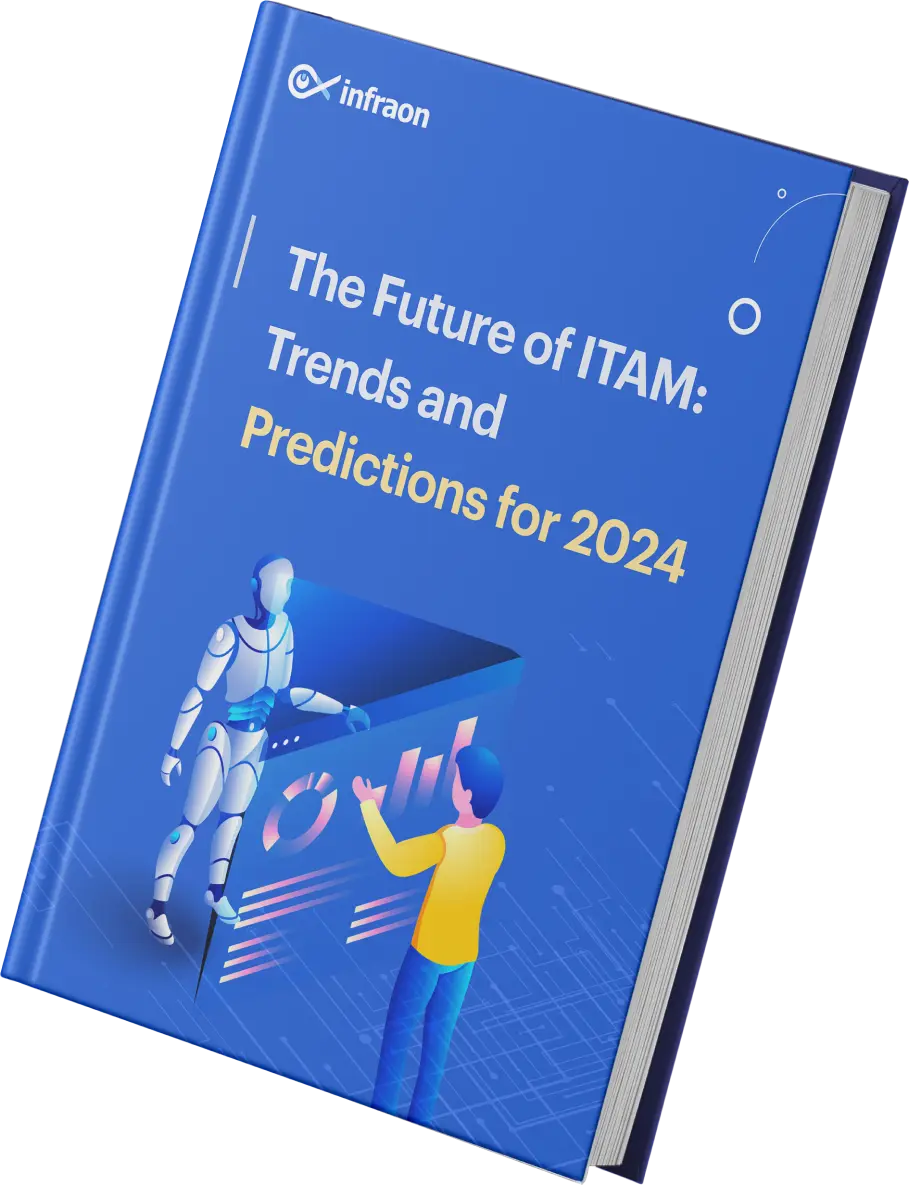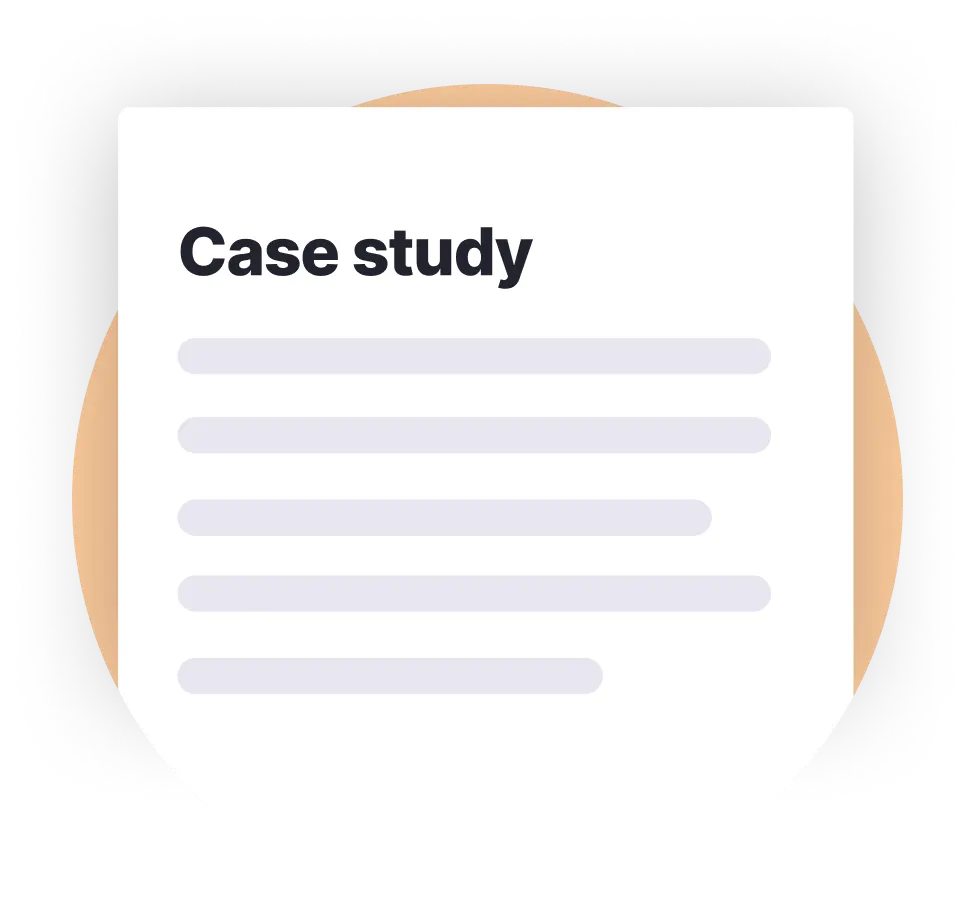Software License Management Solution
Simplify how you handle licenses with Infraon’s
software license management solution.

Simplify how you handle licenses with Infraon’s
software license management solution.

Software license management is how organizations document, monitor, and manage software licenses. It ensures compliance with software licensing agreements, helps avoid legal issues, and optimizes software usage. By keeping track of the licenses, it is easy to determine if software assets are being underutilized or overutilized.
Software license management also equips organizations to enforce licensing policies. It includes periodic audits to verify that the software being used is compliant with the terms set forth by the software providers.


Infraon's software license management solution makes it effortless to track and manage software licenses. It offers real-time visibility into software usage to drive licensing compliance and avoid legal issues.
Infraon's software license management solution's user-friendly interface allows for easy tracking of license allocations, renewals, and expirations. Organizations can maintain an up-to-date inventory of software assets. It is also intergated with reporting capabilities.
You can always make informed decisions about license procurement and renewal - achieving greater control over software assets.
Enhance your financial strategies by accurately measuring asset
depreciation –
make confident, data-driven choices.
Manage software licenses from a centralized location. Leave no room for error without relying on manual workflows.
Gain visibility into your software licenses, including expiration dates, license types, number of purchases, and availability.
Ensure compliance with software license agreements. Start minimizing the occurrences of audit risks.
Integrate software license management with ITSM capabilities. Use streamlined workflows to manage tickets.
Be audit-ready with comprehensive tracking of all software licenses used throughout the organization.
Track software license usage trends and make data-driven decisions on licenses and contracts.
Learn everything there is to know about software acquisitions. Instantly improve your software inventory.
Empower stakeholders and SMEs with the ability to harness data for effective service delivery.

Customizable Reporting
User and Role Management
Audit Trails
Mobile Accessibility
Understand how new technologies are transforming IT asset
management and position your organization for growth.



Infraon's software license management solution is based on best practices like:
360-degree capabilities for automating critical software licensing workflows
Centralized dashboard to manage licenses, track purchase orders, and monitor license consumption.
Automated reporting on non-compliant software usage to avoid excessive fines and audits
Prevention of unnecessary spending on expired software assets
Easy to manage all types of software licenses – from perpetual and volume-based to SaaS and trial
The benefits of Infraon's software license management solution include:
Significant cost savings by avoiding over-purchasing licenses or paying for unused software
Compliance assurance through regular audits and monitoring of software usage
Reduced risk of using unlicensed or pirated software
Minimized administrative burden on IT departments with automated tracking and reporting
Actionable insights into software usage and license allocation

Software licensing management involves the tracking and documenting of your software assets. It allows your vendors to evaluate how the software is used and ensure that all agreements are up-to-date and according to the right terms and conditions.
Your enterprise needs a robust SLM tool to ensure software optimization and reduced costs. As part of the IT asset management solution, software license management keeps track of the number of users and when it is time for renewal with automatic alerts, thereby saving time and effort.
SLM is a part of the overall IT asset management solutions. SLM can help maintain the documentation integral to all licensing agreements. It also includes reducing and controlling IT expenditure in the organization. Using an effective SLM tool, you can avoid penalties from overdue license renewals and ensure compliance with the end-user license agreements.
SLMs are important because they ensure that the number of licenses used by your business is aligned with what you need eliminating over or under-provisioning. They also ensure compliance and prevent additional costs or fines due to changes in contractual terms. They help remove unauthorized software from your IT ecosystem.
Asset management solutions include Asset Lifecycle Management , IT Hardware Asset Management, Software Asset Management, Software License Management, Fixed Asset Management, Vendor Management, Location Management, Integrated Ticketing, Network Discovery, etc.